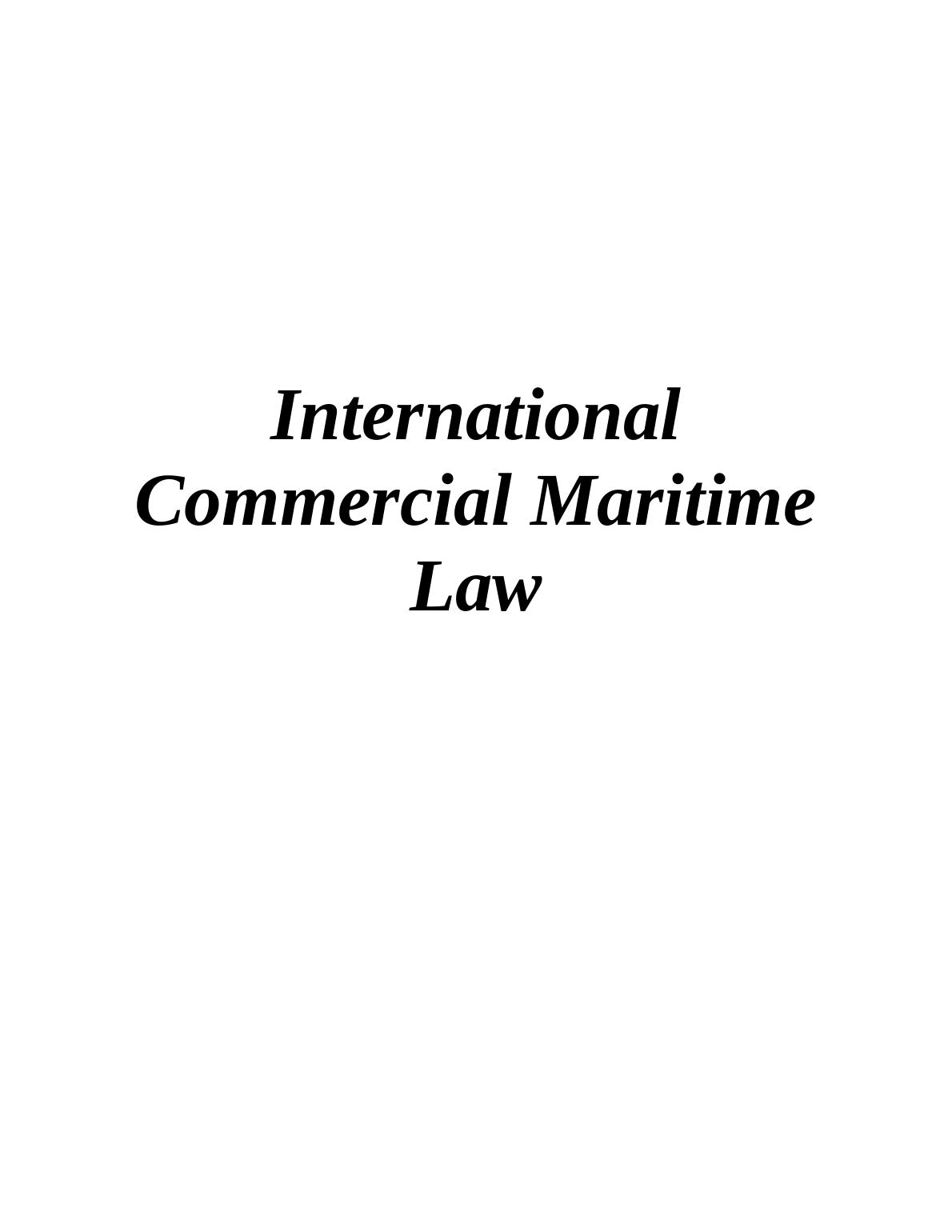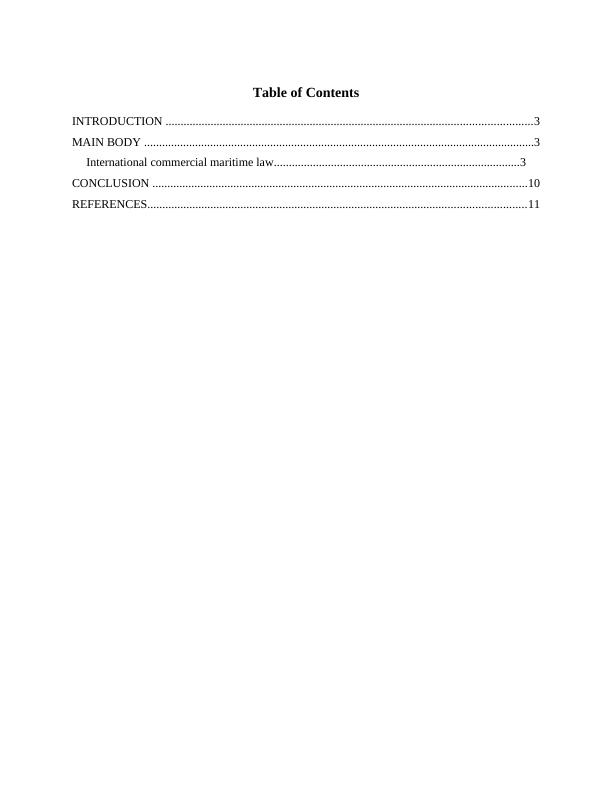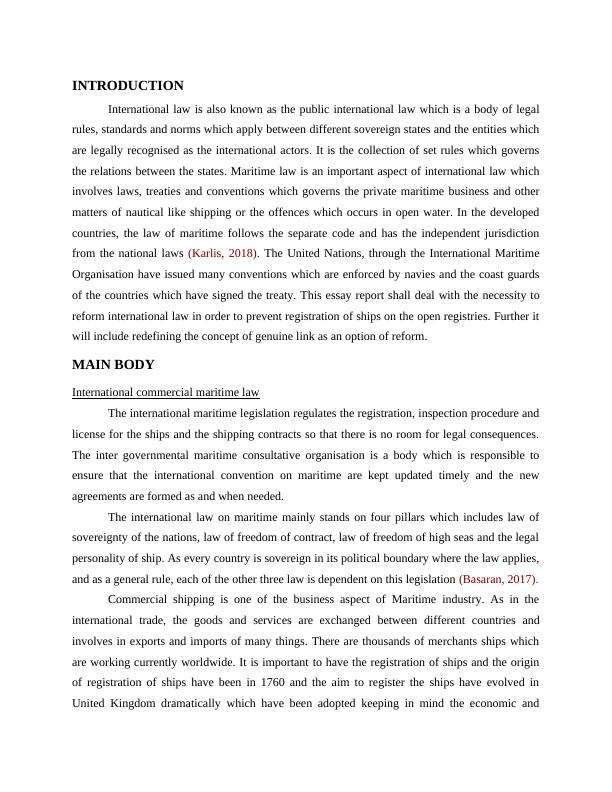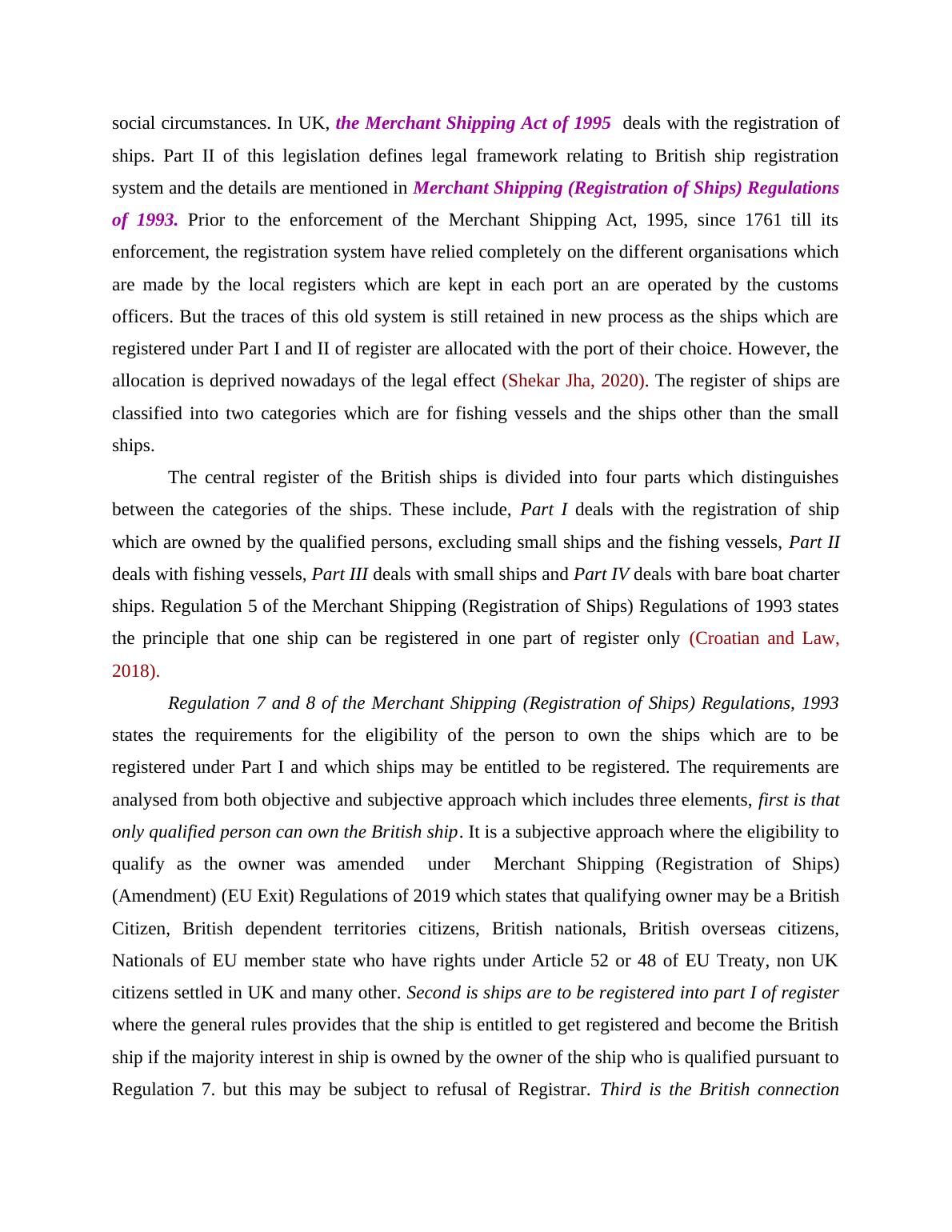International Commercial Maritime Law
12 Pages4453 Words73 Views
Added on 2022-12-28
About This Document
This essay explores the importance of international commercial maritime law and the need for reform in preventing registration of ships on open registries. It discusses the concept of genuine link and the impact of open registries on various aspects such as crime, environment, and working conditions. The essay also highlights the advantages and disadvantages of the open registry system and the role of international conventions in ensuring safety at sea.
International Commercial Maritime Law
Added on 2022-12-28
ShareRelated Documents
End of preview
Want to access all the pages? Upload your documents or become a member.
EC1012 - Introduction to Law
|10
|2068
|89
Carriage of Goods by Sea
|15
|3751
|95
Assignment on Business law - PDF
|16
|4146
|238
Shipping Law: Multimodal Transport, Shipper and MTO, CISG, Quantum Case, MTO as Principle and Agent
|9
|2365
|344
Maritime Law: Autonomous Ships, Salvage Arbitrator, and Freight Forwarder
|11
|3717
|440
CISG: Harmonizing Private Commercial Laws
|10
|3808
|44




